Study in South Korea

Overview
The vibrant and excellent system in South Korea is renowned for its innovation, research, and ability to compete globally. It is a great place for overseas students to study because of its well-known universities, reasonable tuition costs, and technologically advanced classrooms. Students experience a distinct blend of tradition and contemporary, from active city life to rich cultural history. Studying in South Korea also provides prospects for internships, scholarships, and potential jobs in a growing economy.
Why Study in Canada?
World-class education
Canada offers globally recognized degrees and diplomas, with top-ranking universities known for academic excellence and research opportunities.
Safe & welcoming
Canada is known for its low crime rate and inclusive society, creating a safe and friendly environment for international students.
Multicultural society
Canada embraces diversity, with people from all over the world, allowing students to experience various cultures and feel at home.
Research opportunities
Canadian universities emphasize research and innovation, offering students access to cutting-edge facilities and projects across various fields.
Work & PR options
Compared to other popular study destinations, Canada offers quality education at relatively lower tuition fees, making it a cost-effective choice.
Affordable tuition
International students can work part-time during studies and full-time after graduation, with clear pathways to permanent residency through programs like Express Entry.
High living standards
Canada consistently ranks high in quality of life, offering excellent healthcare, infrastructure, and a clean environment for a comfortable student life.
Affordable tuition
From mountains and lakes to forests and coastlines, Canada’s stunning natural beauty offers students endless opportunities for travel and outdoor adventures.
Why Study in South Korea?
Globally respected, high-performing education system
Home to Asia’s fourth-largest & fastest-growing economy
Global leader in IT & digital innovation
Major hub for international finance and business
Offers an exceptional quality of life
QUALIFICATIONS OFFERED
- First Professional Degree
- Diploma
- Associate Degrees
- Applied Degrees
- Bachelor’s Degree
- Master’s Degree
- Doctorate
TEST REQUIREMENT
- TOEFL or IELTS scores as a proof of English proficiency. Depending upon the institution, the score requirements may vary between 80-100 for TOEFL and 6.0 – 7.0 bands in IELTS.
- For MBA admission a good score in GMAT is required.
EDUCATION COST
TUITION COST
- Diploma & Advanced Diploma Courses cost range from CAD$11,000 – CAD$13,000 per year depending on the course.*
- Bachelor’s Degrees cost range from CAD$13,000 – CAd$19,000 per year for most under-graduate degrees*
- Post-graduate Degrees cost ranges from CAD$12,000 and ranges up to CAD$22,000*
* Fees given are of informative nature may vary from university to university
TUITION COST
Approximately CAD 10000 for 1st year.
WORK RIGHTS & STAY BACK POST STUDY
TUITION COST
- Part time work right : Off campus 20 hours per week – 40 hours per week during vacation
- No limit for on campus work
- Upto 3 years stay back for ( 2 years study )or equal to the course duration if it is less than 2 years
INTAKE
- January
- May
- September
Universities
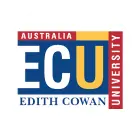
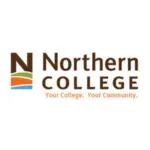


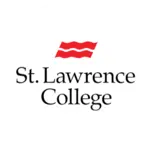
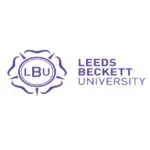



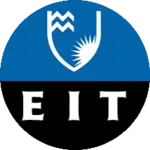

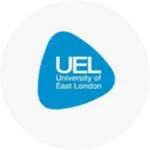



South Korea has a highly competitive and regulated educational system that is renowned for its academic brilliance and technological advancement. South Korean universities provide a broad range of undergraduate and graduate programs and are divided into national, public, and private institutions. The main intakes for international students are in January, May, and September, while some colleges provide ongoing admissions. The South Korean educational system, which places a strong emphasis on innovation and research, offers students all over the world a vibrant learning environment.
International students studying in South Korea are typically expected to demonstrate fluency in either Korean or English, depending on the language of teaching for their selected program. Most colleges require a minimum TOPIK level of 3 or above for Korean-taught programs. English-taught programs frequently need verification of English competence through examinations such as IELTS or TOEFL, with minimal scores varying by institution. Some colleges additionally provide language assistance or preparatory language classes to help students satisfy these requirements.
Understanding the Canadian Education System
Canada’s education system provides a varied selection of programs through universities, colleges, and technical institutes, catering to students with a variety of employment goals. An exceptional aspect of the Canadian educational system is its focus on experiential learning, which enables students to obtain practical experience through research partnerships, co-ops, and internships. Additionally, the nation offers overseas students the chance to work both during and after their studies, which lowers the cost of education and focuses on careers. With a reputation for competence, inclusivity, and a solid student support system, Canada remains a popular choice for people seeking a high-quality education and potential employment opportunities.
Canadian universities offer three main intakes for international students: January, May, and September.
Language Requirements
International students need to prove English competence on standardized tests such as the TOEFL or IELTS to study in Canada. Depending on the school, the necessary scores can vary, but generally speaking, they fall between 80 and 100 on the TOEFL and between 6.0 and 7.0 on the IELTS. A competitive GMAT score is frequently needed as part of the admissions process for MBA candidates. Institutions may have particular prerequisites, therefore, students must check the qualifying criteria of their preferred program before applying.
Do you have Questions ?
Find answers to common queries about our services, processes, and policies. If you need further assistance, feel free to reach out.
1. What are the prerequisites for studying in South Korea?
Students normally require a high school certificate (for undergraduate) or a related bachelor’s degree (for postgraduate), as well as proof of language fluency (TOPIK for Korean-taught programs or IELTS/TOEFL for English-taught programs).
2. Does studying in South Korea require knowing Korean?
Not always. Although many institutions offer English-language degrees, being able to communicate in basic Korean might improve daily life and career prospects.
3. What are the most common university intakes in South Korea?
The main intakes are in January, May, and September, while some universities may accept applications on a rolling basis.
4. Does studying in South Korea cost a lot of money?
Compared to many Western countries, South Korea has lower tuition and living costs, as well as a variety of scholarships accessible to overseas students.
5. Can I work while I studying in South Korea?
Yes. International students can work part-time up to 20 hours per week during semesters and full-time during holidays with correct approval from immigration officials.
6. Do international students have access to scholarships?
Yes, many colleges and the Korean government provide merit or need-based scholarships, such as the coveted Global Korea Scholarships (GKS).
